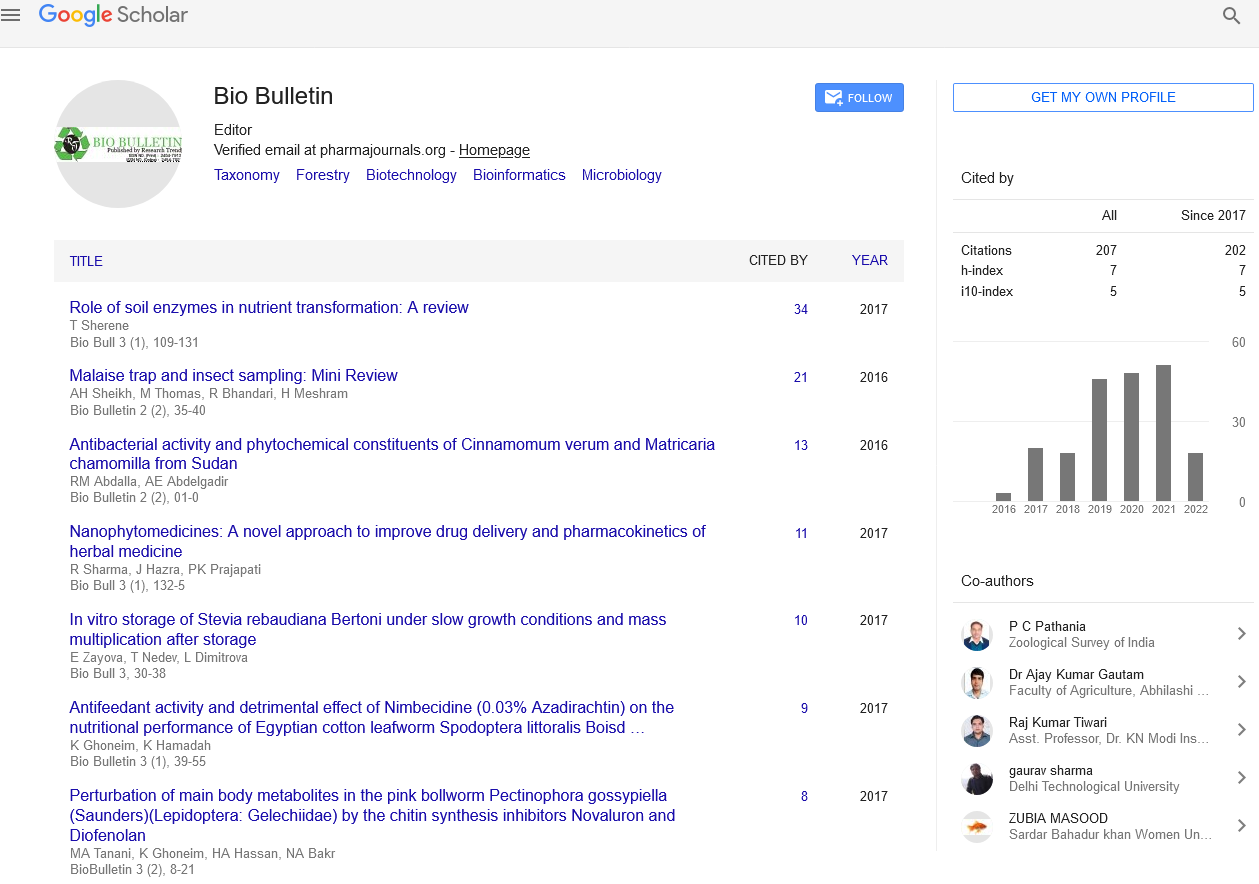Postharvest Microbial Contamination in Oyster Mushroom and their Management using Plant Essential Oils
Abstract
Author(s): Hari S. Adhikari, Sanjay Kumar Jha
Micro-contamination is one of the major causes for the postharvest loss which affects the quality and restrict the shelf life of horticultural fresh produce during the supply chain. Mushrooms are more vulnerable as their shelf life is too short and are consumed fresh. The main target of this work is to isolation and control of fungal contaminants in mushrooms during the postharvest storage. Samples of Pleurotus ostreatus and Pleurotus florida were collected from three major vegetable market of Kathmandu city which revealed presence of 21 fungi. Results exhibited Aspergillus niger and Rhizopus sp as most abundant contaminants which were treated with different concentrations of essential oils of Cinnamomum tamala, Mentha spicata, Zanthoxylum armatum and Eucalyptus citriodora using poisoned food technique. The control combination was potato dextrose agar with no oils added. All the EOs were found significantly inhibit (p<0.05) the growth and spore germination of both test fungi. A strong inhibitory action of cinnamon oil and mentha oil was recorded against A. niger and Rhizopus sp respectively at a concentration of 20 μl/ml. This clearly suggests that EOs could be an alternative to the synthetic chemicals that are currently used to control fungal contamination in mushroom and extend their shelf life.
Share this article

Google Scholar citation report
Citations : 320
Bio Bulletin received 320 citations as per Google Scholar report
